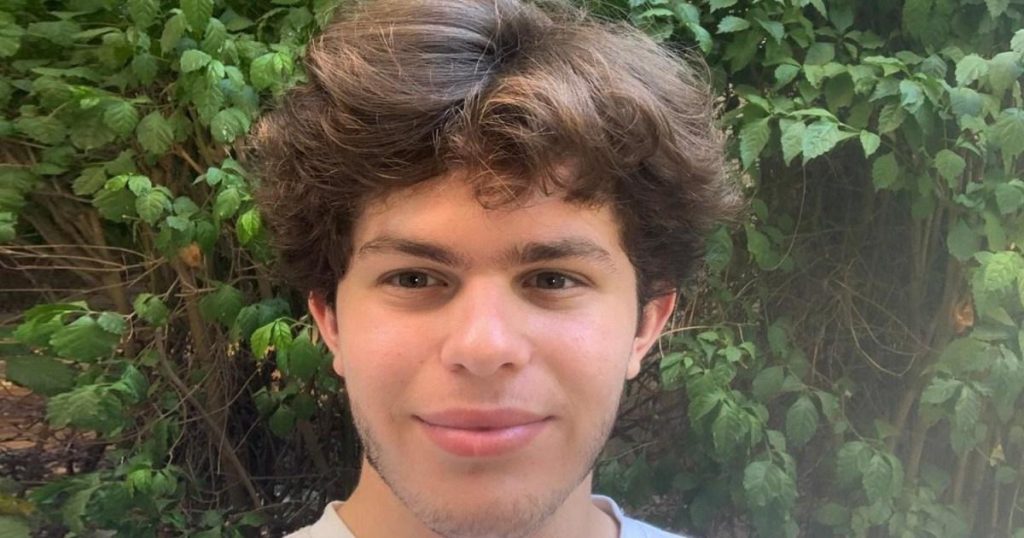Tal Mitnick, a 19-year-old Israeli, has recently emerged from six months of incarceration, a consequence of his principled refusal to serve in the Israel Defense Forces (IDF). This stand against conscription stemmed from his deep-seated objection to the Israeli government’s policies and actions, particularly in relation to the Palestinian territories. Mitnick’s imprisonment marked a significant turning point, establishing him as the first conscientious objector to be jailed in the wake of the 2023 Gaza conflict. His story underscores the growing tension within Israeli society surrounding the ongoing conflict and the moral dilemmas faced by young Israelis compelled to serve in the military. The experience has visibly matured Mitnick, replacing the youthful visage in his pre-imprisonment photos with a newfound seriousness reflective of his ordeal.
Mitnick’s journey began in December 2023 when he initially refused his mandatory draft. He was subsequently summoned before a judge and sentenced to 30 days imprisonment, a ruling that caught him completely off guard. This initial sentence proved to be only the beginning of a protracted struggle. Upon his release, the IDF repeatedly ordered him to report for duty, a cycle that continued for several months, culminating in a total of 185 days spent behind bars. Throughout this period, Mitnick remained steadfast in his refusal, driven by his conviction that participating in the military meant contributing to a system predicated on violence and perpetuating the conflict. The IDF eventually conceded, granting him an exemption and ending his cycle of imprisonment.
Mitnick’s refusal to serve was profoundly shaped by the escalating violence and the events surrounding the October 2023 Hamas attack. While he had harbored reservations about military service since his early teens, the escalating conflict solidified his opposition. He felt that participating in the IDF, even in a non-combatant role, would indirectly support policies and actions that he believed were counterproductive to peace and security for both Israelis and Palestinians. This realization propelled him to take a public stance against conscription, a decision that drew considerable criticism and accusations of treason from some segments of Israeli society. However, undeterred by the backlash, Mitnick chose to prioritize his conscience over social pressure.
Now free from the threat of further imprisonment, Mitnick has begun rebuilding his life, embracing the opportunity to pursue education and employment. However, his activism has not ceased. He continues to organize protests against the government and actively shares his experiences with other young Israelis contemplating military service. As a member of Mesarvot, a network supporting conscientious objectors, Mitnick provides crucial information and guidance to those grappling with similar moral dilemmas. While careful to avoid explicitly encouraging draft evasion, which is illegal under Israeli law, he urges his peers to critically examine the implications of military service and its impact on the ongoing conflict.
Mitnick’s story also sheds light on the evolution of his views on the Israeli-Palestinian conflict. He candidly admits that during his early teens, influenced by the prevailing societal narratives, he considered joining an intelligence unit as an alternative to combat roles. The allure of a prestigious career path, coupled with his aptitude for mathematics, initially attracted him to this option. However, as he gained access to information beyond the dominant discourse, his perspective began to shift. He became increasingly critical of the role of intelligence units in perpetuating the occupation and realized that even non-combatant roles contribute to the system he opposed. This realization reinforced his decision to refuse military service altogether.
Mitnick’s case highlights the increasing number of young Israelis questioning their compulsory military service, especially in light of the escalating conflict. His activism has brought attention to the internal dissent within Israel and the difficult choices faced by its citizens. While his actions have drawn criticism from some quarters, they have also resonated with those who share his concerns about the ethical implications of military service in the context of the ongoing conflict. His story serves as a powerful testament to the struggle between individual conscience and national obligation in a society deeply marked by conflict and division. As the conflict continues, stories like Mitnick’s are likely to become more prevalent, representing a growing segment of Israeli society grappling with the complex moral and political realities of the region.











